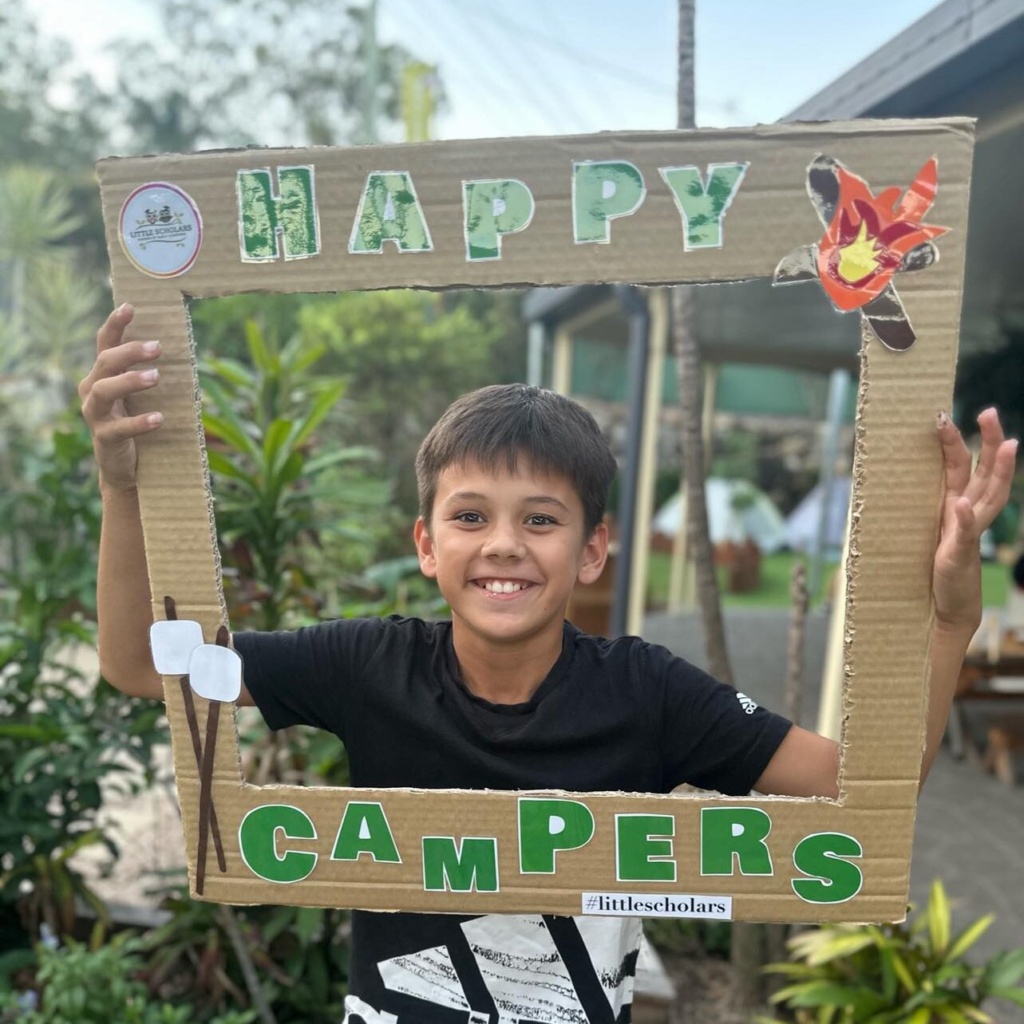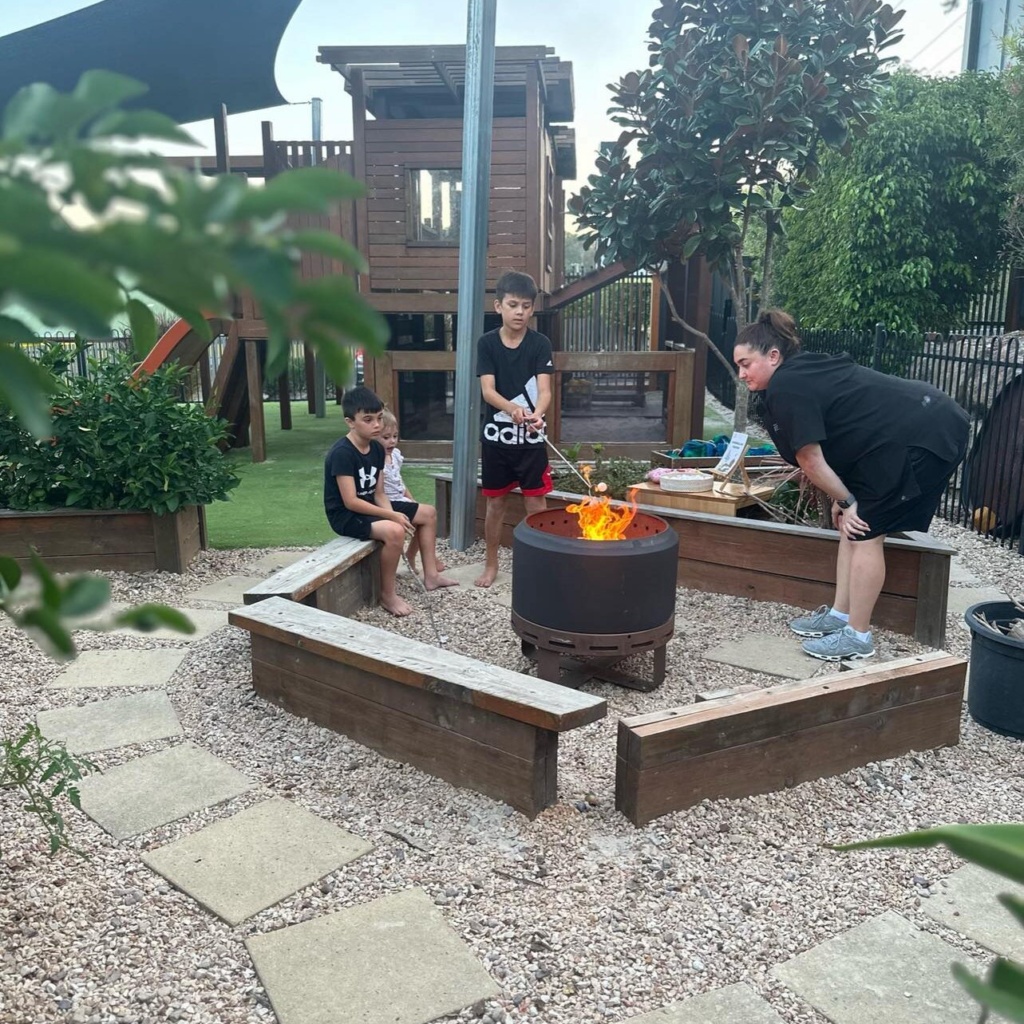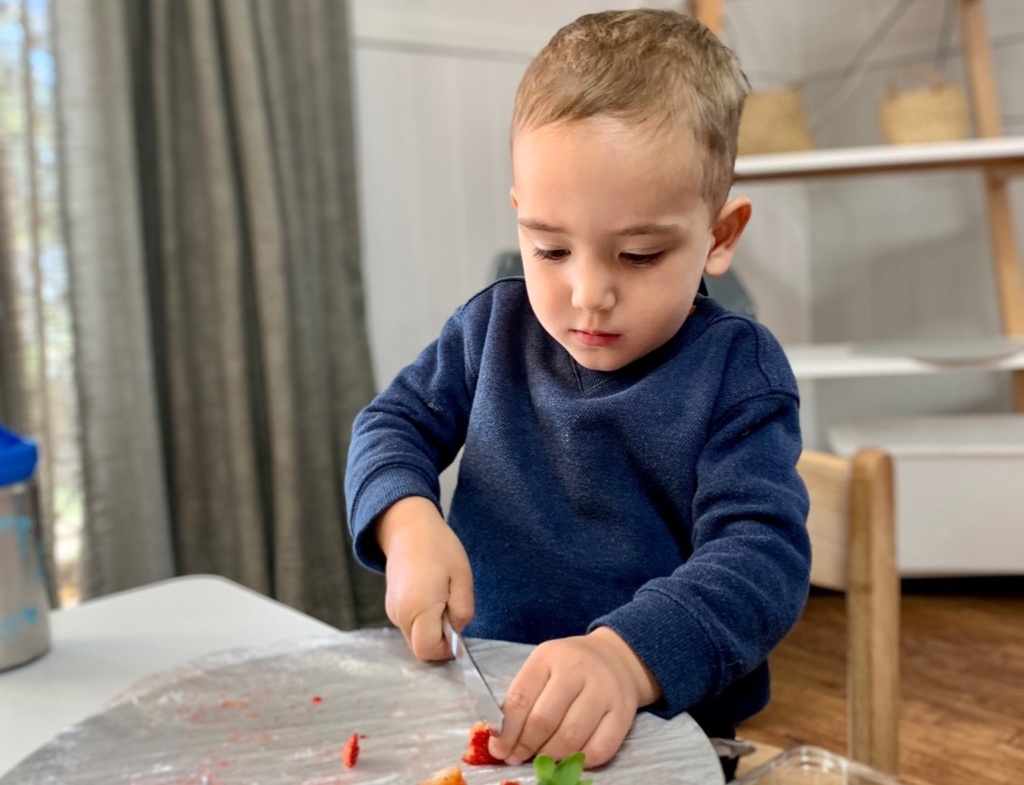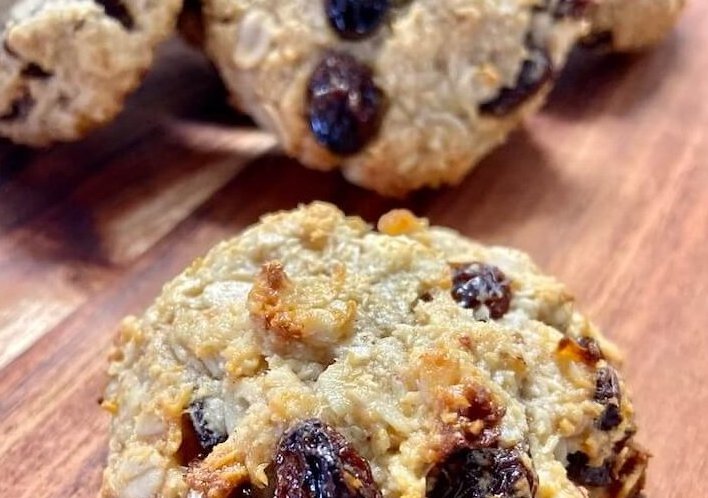Are you planning a family camping trip near Brisbane? Camping with children can be a fun and rewarding experience, but it requires some extra planning and preparation. From choosing the right campsite to packing the essentials, there are a few things you’ll want to keep in mind to ensure a successful and enjoyable trip.
They say that there are two types of people. Those who love camping and those who don’t know they love it yet. If you fall into the first camp, you’ll be well aware of the incredible impact that camping can have on you. It’s a time to emotionally and spiritually recharge. You’re disconnected from the minutiae of urban and suburban life and immersed in a setting where all of your modern day needs and concerns are stripped away.
And if you’re planning a family camping trip near Brisbane, there’s no better time to experience the joys of camping with your loved ones. Camping is bliss. If you don’t know that yet, you’re about to. Let’s take a look at what to pack for your family camping trip and offer some suggestions for the best camping spots near Brisbane. We’ll also provide tips for choosing a family-friendly campsite, so you can relax and enjoy the great outdoors with your loved ones. So, grab your tent, pack your bags, and get ready for an adventure!
If you’re looking for childcare centres in Brisbane or the Gold Coast, look no further. At Little Scholars, our goal is to be an extension of your family. Our first priority is the growth and development of your child; we nurture, teach and guide your child to developing all the skills that will allow them to succeed in life. Find a campus near you today.
Camping can be a magical experience, regardless of the season. In winter, watching your children marvel at the way their breath forms shapes in front of their faces as you pitch your tent can be truly delightful (if a little cold). And during the summer, camping is a great way for children to spend their childhood, despite the heat and humidity.
More than just a fun activity, camping can also teach our children valuable life skills. Through camping, they can learn to appreciate nature, become more responsible and mature, develop a strong work ethic, and understand the importance of safety and getting along with others. Along the way, you might even meet fascinating characters and make lifelong friends.
Camping is truly what childhood memories are made of. If you think you can do without the conveniences of the big city for a couple of nights, pack up your tent, hit the road, and say a cheerful “coo-ee” to your fellow campers. You might just find a home away from home in nature.

If you’re planning a family camping trip near Brisbane, there are a few essential items that you’ll want to make sure you take camping for you and your little ones.
First and foremost, you’ll need a safe and sturdy tent. Look for a tent that’s appropriate for the size of your family and that has enough room for everyone to sleep comfortably. You’ll also want to invest in quality sleeping bags and mats to ensure that everyone gets a good night’s sleep. When camping with children, it’s important to prioritise comfort to avoid any meltdowns or sleepless nights.
Appropriate shoes and clothes are also vital when camping. Well gripped shoes are a must when using communal toilets and showers to avoid any slips or falls. During the day, sturdy closed-toe shoes will also protect your child’s feet from rocks and other hazards when adventuring. Pack clothes that are suitable for the weather conditions, including rain gear and warm layers for cooler evenings.
Pack some favourite snacks. Camping can be an active and adventurous experience, so you’ll want to make sure you have plenty of snacks on hand to keep your little ones fueled up. Pack some of their easy ready-to-go favourite treats, such as granola bars, trail mix, or fruit snacks. And don’t forget the marshmallows for roasting over the campfire!
Pack one of their books. Camping can be a great opportunity to unplug and enjoy the natural world around you, but it’s also nice to have some quiet downtime. Bring along a book that your child loves or pick up a new one before you leave. Reading can be a great way to wind down before bed or to relax in a hammock during the day.
Camping is all about spending time outdoors and having fun, so make sure you bring along some activities to keep your children entertained. Outdoor games like frisbee, catch, or a soccer ball can be a great way to burn off some energy and get active. Board games or a deck of cards are also great for rainy days or quiet evenings around the campfire. And if you’re looking for a more immersive experience, try bringing a scavenger hunt or nature bingo game to help your children explore the natural world around them
In addition to the above essentials, you’ll want to bring along a few other key items. Torches will be essential for nighttime bathroom trips and navigating around the campsite in the dark. A first aid kit is also a must-have in case of any minor injuries or accidents. And don’t forget your sunscreen and bug spray!
Lastly, make sure you have food storage containers and a rubbish bin to keep your campsite clean and free of any critters.

Your family will have a set of criteria when it comes to selecting the best possible campsite for your holiday. This will depend on the number of children you have with you, their ages, their physical abilities and your attachment to modern conveniences.
Here are some important factors to consider when selecting a family-friendly campsite:
Toilets and Shower Facilities:
When camping with little ones, it’s important to have access to clean and convenient toilet and shower facilities. Look for campsites that offer modern amenities such as flushing toilets and hot showers. It’s also worth checking whether there are family-friendly facilities like baby changing stations or accessible bathrooms for those with special needs.
Popularity of the Campsite:
Consider the popularity of the campsite you’re considering, especially if you’re camping during peak season. If the campsite is known for being a party spot or a popular destination for rowdy groups, it might not be the peaceful retreat you’re looking for. Look for quieter campsites that cater to families with young children.
Items of Interest for Young Children:
Choose a campsite that has nearby attractions that your small humans will enjoy, such as beaches, parks, bush walks, or open spaces. This will give your children the opportunity to explore and play, and will help keep them entertained throughout the trip.
Family-Friendly Facilities:
Make sure the campsite has family-friendly facilities like playgrounds, BBQs, and picnic tables. These amenities will help make your trip more comfortable and enjoyable for everyone. If your family likes to fish, look for a campsite with fishing spots or other outdoor activities.
Proximity to Unfenced Potential Hazards:
Be aware of any unfenced potential hazards like bodies of water near your campsite. This is especially important if you have young children who may be at risk of wandering off. Look for campsites that are fenced or have safety measures in place to ensure that your family stays safe.
Reputation and Rating of the Campsite:
Do some research on the campsite’s reputation and rating before booking your trip. Check online reviews on sites like Tripadvisor or Google to get an idea of what other families have experienced at the campsite. This will help you make an informed decision and choose a campsite that meets your family’s needs.
By considering these factors when choosing a family-friendly campsite, you’ll be able to find the perfect spot for your family to enjoy the great outdoors
Now that you’re in the mood to spread out a swag, here are some of the best campground spots near Brisbane to go camping with children.
The scenic rim is one of the most spectacular places in South-East Queensland. The gorgeous, untouched hinterlands blend seamlessly into picturesque, quaint farm lands. The camping opportunities at Bigriggen mean that families can easily access this hidden wonderland. Powered or non-powered sites mean you can choose the level of comfort you desire.
There is opportunity to go fishing and bushwalking, 4WD tracks, bike riding and swimming. Amenities are plentiful with showers, bathrooms and drinkable water all available onsite. You can even bring the dog! A perfect first-time experience for camping with the whole family.
Visit the Bigriggen Campground website today!
Heading about 30 km south of the Tweed will bring you to the beautiful Hastings Point area. There are lots of different campsites around here – some of them even offering Surfari (glamping) tents for the travellers who enjoy the finer things in life! There are lots of things to see and do in the township and the winding river tributaries are perfect for exploration and kayaking.
Check out Hastings Point campsites.
This is a camping-with-children hotspot and for good reason. Toddlers and young children NEED space to get physical and run around. These camp sites are grassy and spacious. There is plenty of room to ride bikes and climb trees. The nearby water is peaceful and calm and perfect for a splash about. Gentle walking trails pepper the nearby areas offering plenty of opportunities for exercise and stretching the old (and young!) legs.
Visit Habitat Noosa’s website today!
Borumba Deer Park camping is about two hours from Brisbane. It offers creek side camping with the promise of swimming, fishing and kayaking. This is a peaceful spot for reflection and contemplation. It is well appointed for families with facilities like toilets, kitchens, laundries and a little shop (with coffee!).
Visit Borumba Deer Park website today!
The above listed sites are but the tip of the iceberg when it comes to idyllic camping spots near Brisbane. There are fabulous spots for families throughout the Gold Coast region, Toowoomba, Ipswich and further afield.
Now that you’ve discovered the best spots for camping near Brisbane, it’s time to discover how nature play can bring out the best in your child. Find out at Little Scholars.
After getting the little ones to bed each night, you are probably just about ready to turn in yourself. It can be hard to motivate yourself to do anything more than scroll through your phone while brushing your teeth! Although this may be your own night-time ritual, spending a little bit of time away from the screen to get a few things done might make your tomorrow go a whole lot smoother.
A good morning routine starts with a little bit of preparation the night before, so here are our ideas for some little habits and rituals that might make life easier in the morning for families, and can be done before anyone hits the hay

You’ve probably learned the hard way that packing lunches in the morning may make you late for work, school, or kindy. Leftovers from dinner packed in a contained whilst dinner is being served makes it nice and easy to grab in the morning, alongside some fruit and snacks. Or, get your child involved in lunch preparation! By letting them choose what fruits, veggies, and snacks they will have for lunch means they will more likely eat what’s in their lunchbox.

There’s nothing like a tidy kitchen bench to wake up to in the morning! Cleaning up the kitchen after you finish eating closes out the last meal of the night and ensures you have clean surfaces to wake up to in the morning. Run the dishwasher before you go to bed so you can wake up to a full set of dishware in the morning – no one wants to wake up to dirty dishes in the sink.
Besides the kitchen, give yourself some time to tidy-up the house before going to bed. This will make your home feel nice and fresh in the morning and everything will be much easier to find as it will be where it is supposed to be! If you’re struggling to feel motivated to tidy-up, set a timer for 15 minutes and see how much you can tidy before turning in. Include the whole family by making it a competition to see who can do the most in the time allotted. You’ll be surprised just how much you get done!
Some people might even like to prepare breakfast the night before, like soaking overnight oats or making hard-boiled eggs. Prepping breakfast muffins or mini quiches on a Sunday afternoon are great options for a ‘grab and go’ breakfast come Monday morning.
One of our favourites from the Little Scholars Summer menu is our Breakfast Cookies which are super simple to make and a delicious, easy breakfast for the morning.

A great habit to get into is choosing everyone’s outfits the night before. Have your child choose what they want to wear the next day, including socks and shoes. This saves the out-the-door battles you may face with your little ones, who are never prompt when you need them to be! Set out what you’re wearing the next day as well, and that includes getting any ironing that you need done in the evening, or when putting laundry away. This is much better than running around the house in the morning looking for your favourite shirt or work uniform! Gather any sports uniforms, workout clothes, or a spare outfit for your little one and put them in a bag next to the front door.

After getting ready for the next day, it’s important to remember the one thing that will make tomorrow go smoothly and that is getting a good night’s sleep. Set yourself a little bit of time to wind down before going to sleep. This can be whatever relaxes you, watching TV, showering (which can also save time in the morning) or reading. Try to avoid scrolling through your Instagram feed or checking your work emails. You deserve the rest!
Sadly, losing a pregnancy is a heartbreak many Australian families experience at least once in their lives. In fact, up to one in five pregnancies end in miscarriage or the loss of a child. When that loss happens, emotions can range from sadness, depression, anxiety, anger, and confusion. These feelings are not only limited to the parents but the whole family.
Even as their parent, it can be hard to figure out how to talk to your children about the loss of a baby, especially as you process your own feelings about it. How that talk happens will likely depend on your child’s age, developmental level, and temperament.
Even if they hadn’t been told about the pregnancy, your child may have the sense something sad has happened. How you handle this is up to you. This may be the time where you tell them what happened, or perhaps it’s something like ‘Mummy and Daddy are feeling sad, but don’t worry, we’ll be okay and nothing we feel takes away from how much we love you.’
If your child has been told about the pregnancy, use words and concepts that they can easily understand. For example, the word miscarriage isn’t a term many young children would recognise. Additionally, toddlers and preschoolers also may not understand a phrase like pass away, so try to steer clear of euphemisms and cliches.
You may choose to explain that the baby was sick and couldn’t live outside of Mummy’s belly. Or that while your child grew strong and healthy in Mummy’s belly, you don’t know why but this baby did not. Remind your child what happened was no one’s fault, and nothing could’ve changed what happened.
Tell your child there’s no shame in showing emotion. If you get upset while talking to your child, you could explain it by saying something like ‘Mummy was crying today because she’s sad about the baby,’ or ‘Daddy was frustrated today because there was nothing he could do for the baby.’ Children are better at ‘reading the room’ than you think. They can pick up on the emotions of the grownups around them and their behavior might shift – try to be patient and understanding while they process their feelings.
Remind your children that it’s something hard that’s happened to the family, and it’s okay to feel sad, angry, confused or any other emotions they may be feeling. Sharing how you feel demonstrates healthy coping skills, a valuable life-long skill for your child. Don’t be afraid to ask your child for a hug if you need one, they may like to know they can comfort you too.
Ask your child if they have any questions about what happened, they may have lots or may not say much at all. Give your child time to process what they’ve just heard and remind them that you’re always there if they have questions later or just want to talk. Offer coping strategies if that might work, either through conversations, books to read, art, or through play.
Check-in with them after a few hours or a few days. Once they’ve had some time to sit with the news, there may be follow-up discussions to have and let them know that’s okay. Encourage them to talk about it with you or someone they trust. If you’re comfortable let your child’s educator know there’s been a loss in the family or some changes at home, this allows your child’s educator to support them and to expect changes in behaviour and will ensure they can help your child navigate their emotions while in their care.
Depending on your culture or religion, you may want to host a grief ritual following a pregnancy loss, anything from a funeral to planting a tree in the baby’s honour. Invite your child to participate.
Don’t forget to look after yourself. Take time to grieve and to heal. It can be hard when you have other family members to look after, but it’s important for the whole family that Mummy or Daddy’s mental health is looked after. Do whatever self-care means to you. Take a bath, take a walk, embrace your emotions through writing or art. Talk to your partner, a friend or family member, a professional, or someone you may know who has gone through something similar. There are groups on Facebook or even hashtags to follow on Instagram or TikTok if those are spaces that work for you.
Finally, keep in mind a child’s grief can look very different from your grief, as well as how they deal with that grief. Let your child know they’re loved, there was nothing they did or didn’t do that could have changed the outcome, and that you’re here for them in whatever way they need you to be.
At Little Scholars School of Early Learning, we’re dedicated to shaping bright futures and instilling a lifelong passion for learning. With our strategically located childcare centres in Brisbane and the Gold Coast, we provide tailored educational experiences designed to foster your child’s holistic development.
Let us hold your hand and help looking for a child care centre. Leave your details with us and we’ll be in contact to arrange a time for a ‘Campus Tour’ and we will answer any questions you might have!
"*" indicates required fields